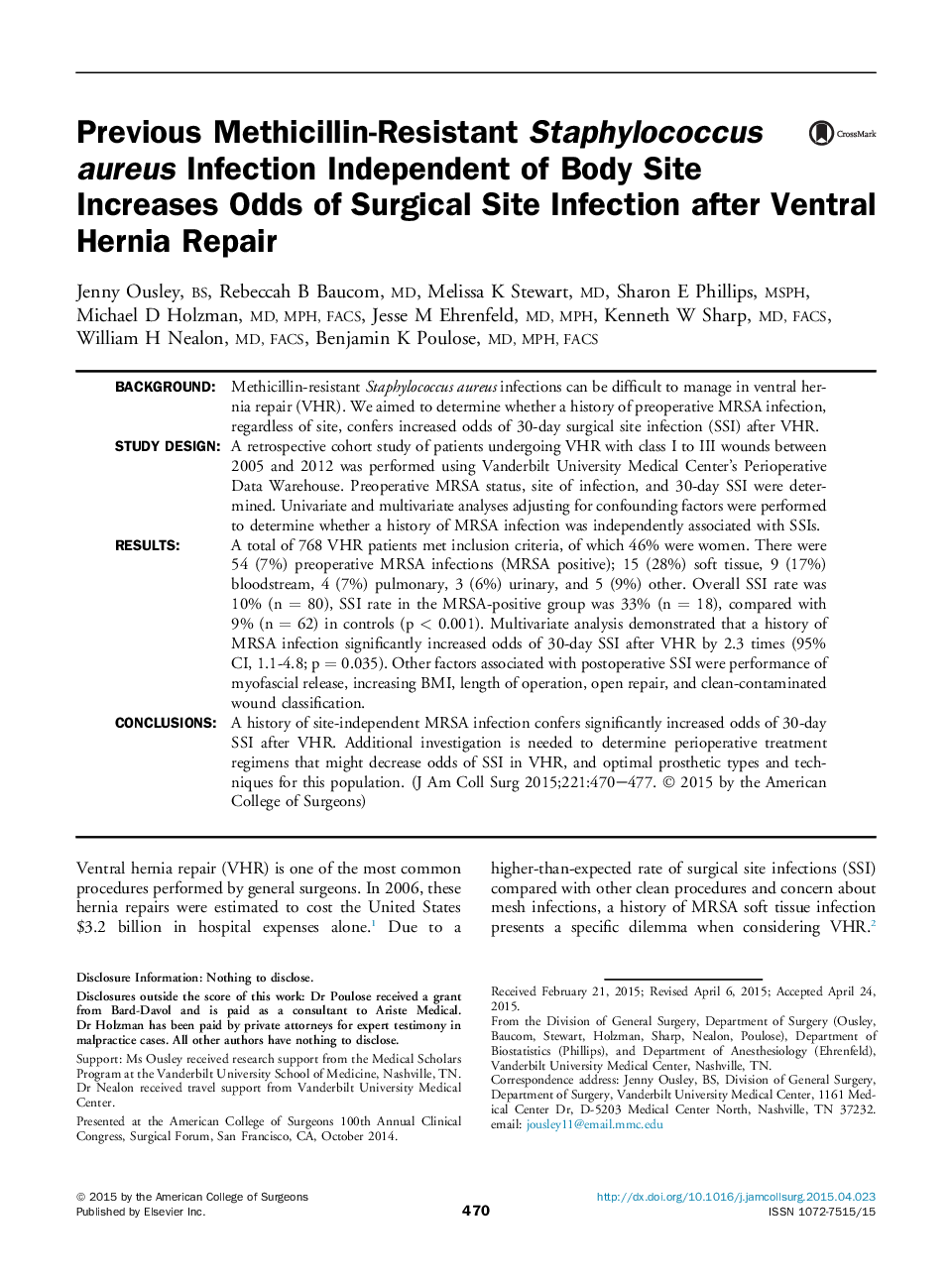| Article ID | Journal | Published Year | Pages | File Type |
|---|---|---|---|---|
| 6252645 | Journal of the American College of Surgeons | 2015 | 8 Pages |
BackgroundMethicillin-resistant Staphylococcus aureus infections can be difficult to manage in ventral hernia repair (VHR). We aimed to determine whether a history of preoperative MRSA infection, regardless of site, confers increased odds of 30-day surgical site infection (SSI) after VHR.Study DesignA retrospective cohort study of patients undergoing VHR with class I to III wounds between 2005 and 2012 was performed using Vanderbilt University Medical Center's Perioperative Data Warehouse. Preoperative MRSA status, site of infection, and 30-day SSI were determined. Univariate and multivariate analyses adjusting for confounding factors were performed to determine whether a history of MRSA infection was independently associated with SSIs.ResultsA total of 768 VHR patients met inclusion criteria, of which 46% were women. There were 54 (7%) preoperative MRSA infections (MRSA positive); 15 (28%) soft tissue, 9 (17%) bloodstream, 4 (7%) pulmonary, 3 (6%) urinary, and 5 (9%) other. Overall SSI rate was 10% (n = 80), SSI rate in the MRSA-positive group was 33% (n = 18), compared with 9% (n = 62) in controls (p < 0.001). Multivariate analysis demonstrated that a history of MRSA infection significantly increased odds of 30-day SSI after VHR by 2.3 times (95% CI, 1.1-4.8; p = 0.035). Other factors associated with postoperative SSI were performance of myofascial release, increasing BMI, length of operation, open repair, and clean-contaminated wound classification.ConclusionsA history of site-independent MRSA infection confers significantly increased odds of 30-day SSI after VHR. Additional investigation is needed to determine perioperative treatment regimens that might decrease odds of SSI in VHR, and optimal prosthetic types and techniques for this population.
